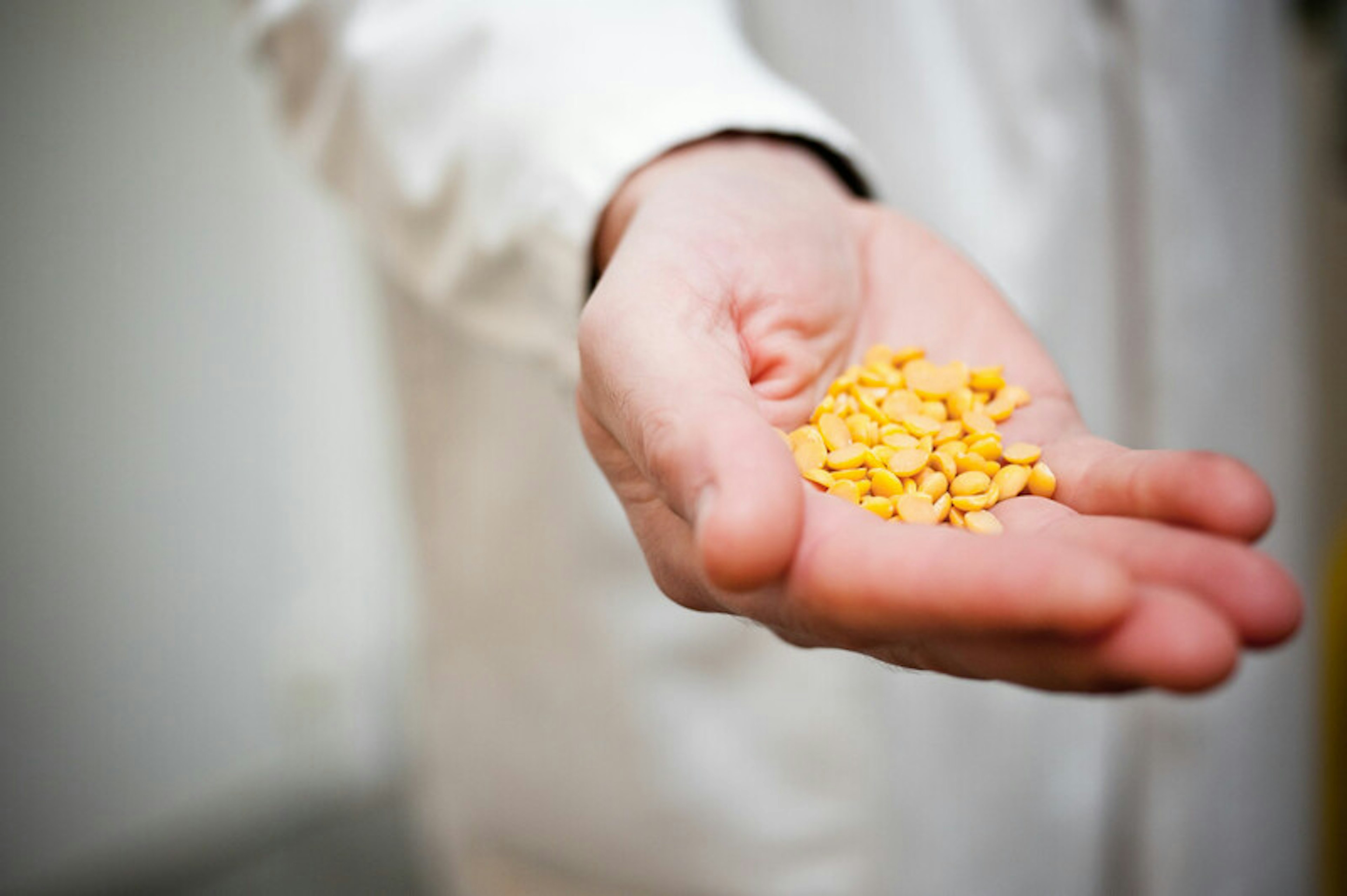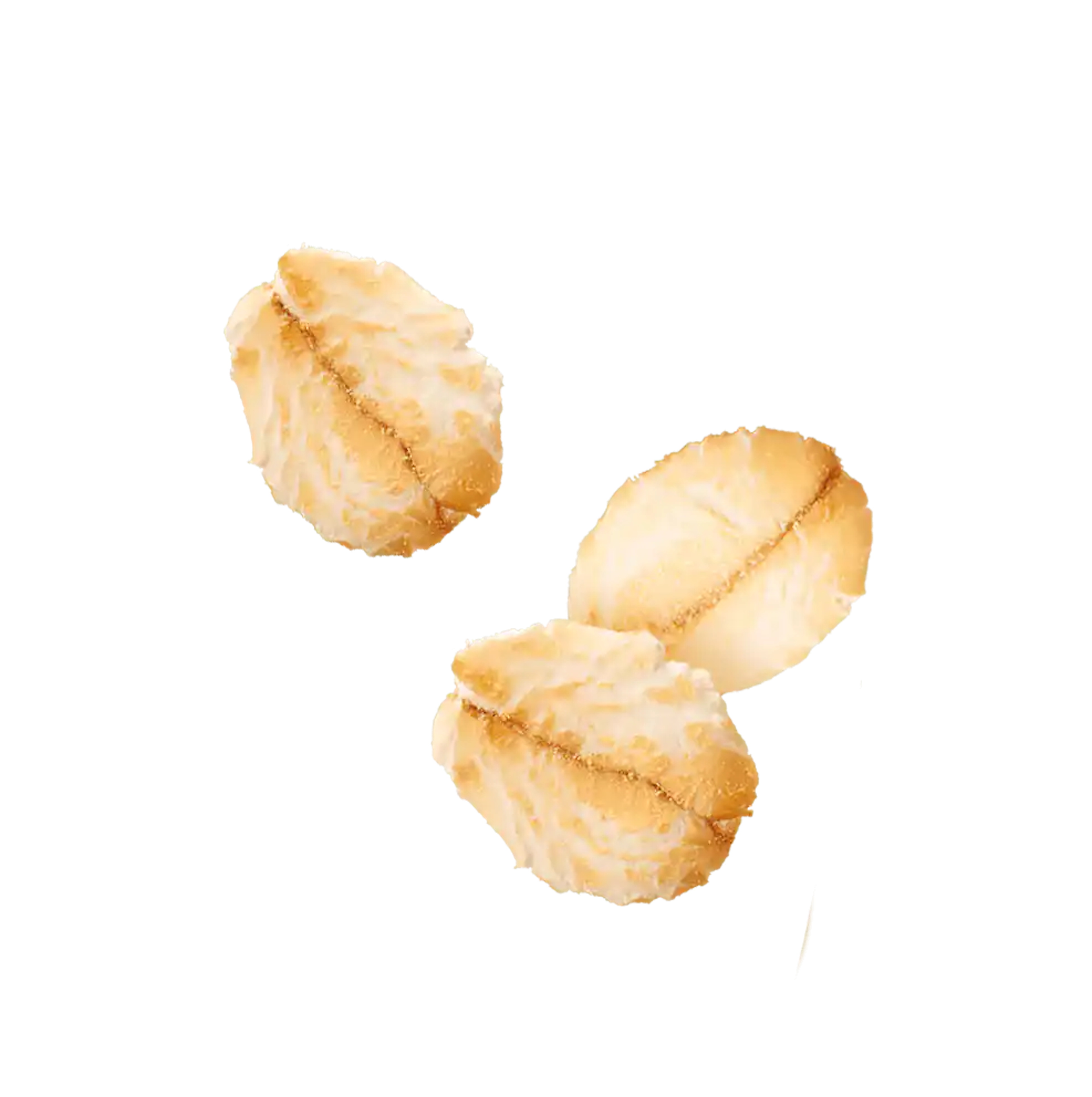Alpro proves that health, environment and growth can go hand in hand
Ghent, 17 December 2015 - Alpro publishes its sustainability report. In this report, the company clarifies its vision and concrete actions with regard to sustainability. An essential part of this vision is the further reduction of CO2 emissions and water usage, and a sustainable use of raw materials. Alpro also attaches a great deal of importance to the reduction of sugar and saturated fat in its complete product range in the fight against obesity and important steps are taken toward local soya cultivation.
"We, as a company, find it important to bring products on the market which are liked by a large group of consumers, but which also have intrinsic value for society. We are aware that the capacity of natural raw materials and resources on our planet is not infinite. This report shows the sustainable choices we consciously make every day again, but also how those choices contribute actively to the achievement of the UN Sustainable Development Goals”, says Bernard Deryckere, CEO at Alpro.
Shared value: healthy growth hand in hand with social impact
The sustainability strategy at Alpro has been built around the concept of shared value - the conviction that health, ecology and a company's economic interests can go hand in hand.
With its products, which are intrinsically sustainable, Alpro has been a forerunner for many years in the field of shared value. Alpro furthermore consciously makes sustainable choices regarding the use of raw materials, production, packaging and distribution, i.e. with as little CO2 emission, water and raw material usage as possible.
Alpro is the first Belgian company to apply the 'One Planet Thinking' concept to its largest product portfolio: soya and almond drinks. This concept was recently developed by Eneco, Ecofys and WWF, and links the environmental impact of a company or product to the capacity of our planet.
At this moment, humankind is using more of the planet's resources than it can replenish. Belgium is fifth on the list of countries with the highest ecological footprint per inhabitant. If everyone worldwide would live as Belgians do, we would need no fewer than 4.3 planets to be able to continue our way of life ! (source Living Planet Report WWF 2014)
A plant-based diet has a much lower ecological impact than food of animal origin. We can state, for instance, that soya drinks use on average 2 times less land surface and 4 times less water and emit 2,5 times less CO2 in comparison with semi-skimmed cow's milk.
"At present plant-based food has a 3.9% share in the European dairy market. It is our aim to increase this figure. A healthy diet and social impact are very important to us, and must go hand in hand with healthy economic growth", says Bernard Deryckere.
12% less sugar across the entire product range
Obesity is an ever increasing social problem. Alpro products offer part of a solution to this problem because they are naturally low in saturated fat and contain as little sugar as possible.
"Our Alpro flavoured drinks contain 30% less sugar than most milk drinks with a fruit or chocolate flavour. Between 2008 and 2014, we have reduced the amount of sugar across our entire range with 12%. We aim to reduce this percentage by 2018 with another 12.5%" according to Christine Debeuf, nutritionist at Alpro.
Alpro has also been working hard for many years to reduce the part played by saturated fat in the complete product range. The company promises that also in the future, 70% of its products will be low in saturated fat.
Towards a future with Belgian soya cultivation
Alpro continues to choose non-genetically modified soya. This soya is produced in Canada and Europe with respect for local farmers and for their surroundings. Alpro also realises the importance of local soya cultivation in making local agriculture more sustainable and limiting transport as much as possible. In Belgium, Alpro has been cooperating since 2014 with partners such as the agency for Innovation through Science and Technology (IWT), the institute for Agriculture and Fishery Research (ILVO) and the University of Leuven in a pilot project to start up soya cultivation in Belgium.
"Through this project we want to make soya the new maize", says Sofie Goormachtigh, PhD student at the ILVO. "We are experimenting with sowing times, the correct varieties, optimum sowing distance, fertilisation, as well as protection of soya cultivation as a rotation crop to maximise the return in this way. Thanks to this cooperation we can hopefully harvest soya in 2017, a crop which up until today does not grow in large volumes in our climate."
In France the company has also introduced soya cultivation in the Alsace region where the factory in Issenheim is fully operating on local French soya. In the Netherlands in 2015, 400 tonnes of locally grown soya was processed into plant-based food.
Press contact:
Alpro – Greet Vanderheyden, Sustainabilty Manager – tel +32 473 80 06 55 - +32 9 260 22 35 – greet.vanderheyden@alpro.com
Alpro - Ann De Jaeger, VP Corporate Communications - tel. +32 475 20 13 44 - +32 9 260 21 09 – ann.dejaeger@alpro.com


